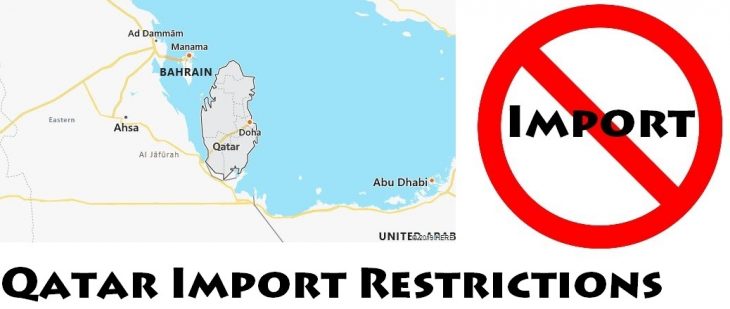Qatar Import Restrictions
In order to enter Qatar, certain goods are subject to specific controls and, regardless of their value and quantity, they require the consent of Qatar government, preferably, license must be obtained prior to passage through the customs, preventing the goods from being retained. On this page, you will see what kinds of items are prohibited from entering the Qatar, and which items need special documentation before exporting to Qatar.
Import regulations
Senders should determine import restrictions from Qatar authorities before posting:
- Alcohol and spirits
- Animals and animal products
- Measuring instruments
- Plants and plant products
- Pharmaceuticals
- Tobacco
- Transmitter and receivers.
Special documentation requirements
Qatar has no current requirements for special documentation.
Prohibitions
In addition to items prohibited by Dangerous and Prohibited Goods & Packaging Post Guide and ECI International Courier Regulations, Qatar prohibits:
- Arms and ammunition
- Animals and animal products
- Animal or vegetable fats
- Clothing bearing the name of Allah or verses from the Koran
- Firearms and firearm parts
- Greeting cards with musical chimes
- Machinery
- Military or similar clothing
- Meat or fish
- Photographic or cinematographic products
- Political printed matter of subversive nature
- Perishable foodstuffs that may exude a foul odour, liquids and oils during shipment
- Pearls, precious stones and metals
- Printed articles; books and newspapers- offensive by nature
- Pork and its derivatives
- Residues and wastes from food industries
- Selective textiles articles
- Toys and games
- Weapons.














































